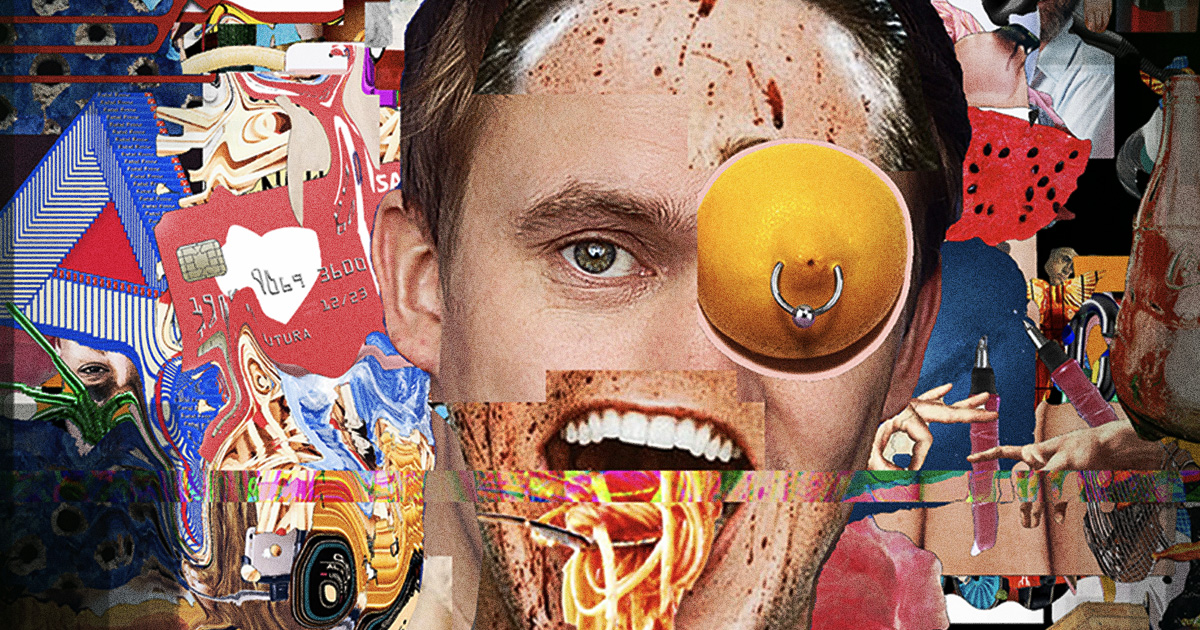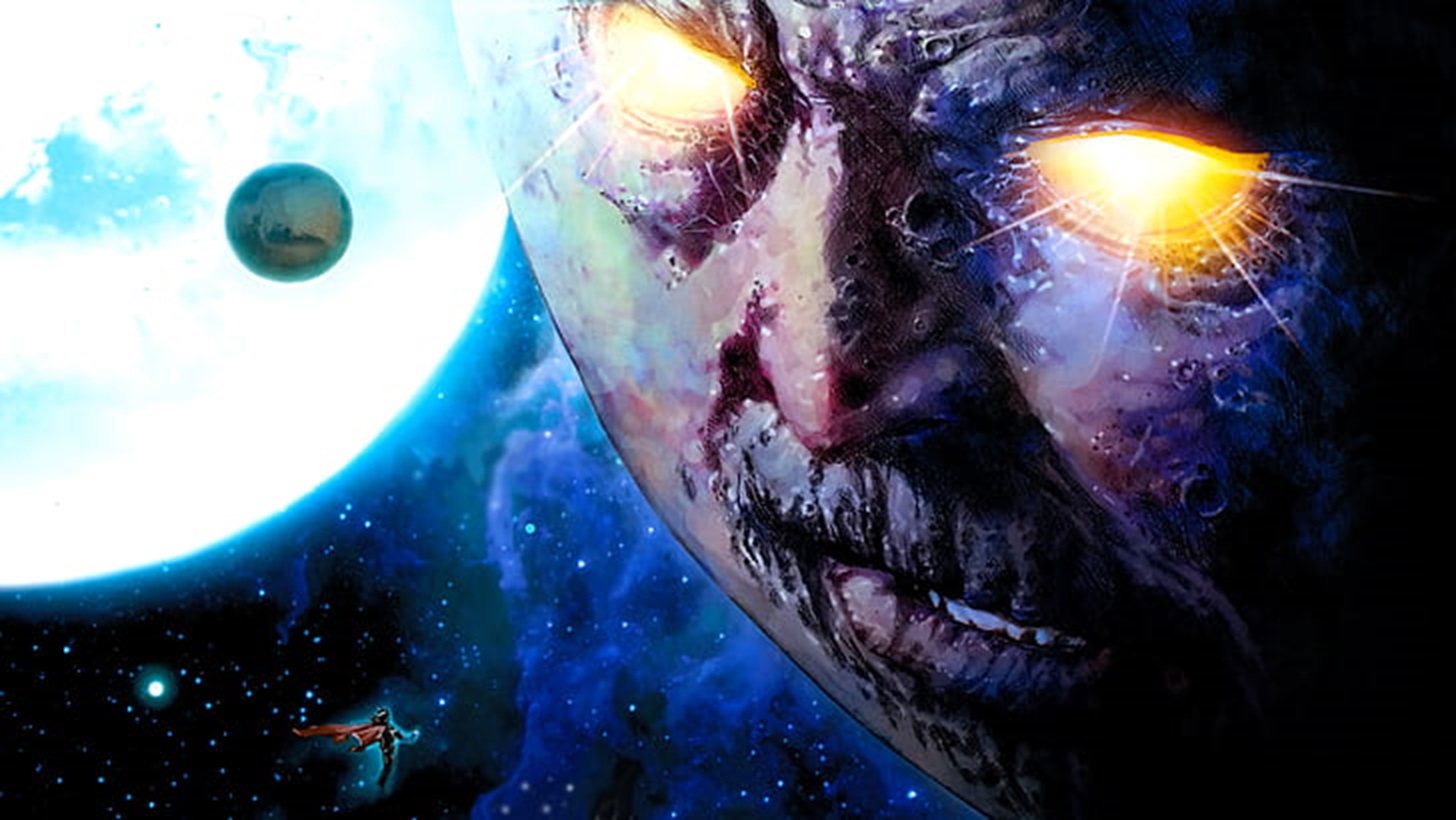Creativity is the key to everything – without it we ‘just aren’t ourselves,’ so to speak. Without it we are simply machines, doing whatever our habits or reflexes are telling us to do. In the mechanical mode of existence all we ever do is act out the same old pattern – when circumstances allow us to successfully act out our pattern then there is satisfaction (to whatever extent) and – by the same token – if the circumstances won’t allow us to act out the pattern then we are frustrated, annoyed, dismayed, angry, out of sorts, and so on.
We’re generally a bit funny about this thing called ‘creativity’ – either we’re ‘precious’ about it in some way (which is utterly counterproductive because it blocks us) or we excuse ourselves by saying that we aren’t at all creative (which also blocks us, needless to say). We’re heading down the wrong road either way, we’re heading down the wrong road no matter what attitude we take since attitudes come out of the thinking mind and the thinking mind has absolutely nothing to do with creativity (despite the fact that it likes to claim affiliation with the creative faculty). Anything we might think about the creative process is completely beside the point; anything we might think about creativity is – by definition – completely non-creative. Thought can analyse humour until the cows come home but there is nothing in the least bit humorous about this analysis! The thing about the creative process is that what were we talking about here is life itself – we can’t not be creative, in other words. Just as life is a spontaneous process (rather than being something that is predetermined, prefigured or rule-based) so are we, whether we’re able to see the fact or not.
Human nature in its essence, is not based on rules or precedence but society is and if so we need to fit in with the social matrix (which obviously we do) then we’re obliged to become mechanical ourselves. This is of course something that has been widely acknowledged – by those who are given to acknowledging such things, at least – but it is worth dwelling on all the same – what we’re talking about here is the situation where we find ourselves having to make a deal with the devil (and – as everyone knows – any deal that we make with the devil ends up working out in his favour rather than ours). We might imagine that we’re going to come out ahead but of course we never do. We hope that we’re going to come out ahead – we cling to this hope for all we’re worth (since it’s all we’ve got) but it’ll let us down in the end just the same.
Doing a deal with the devil always comes down to the same thing – we’re offered a ‘short-term benefit’ that comes with a ‘long term cost’. The thing about the everyday mind is that it will almost always ignore the long-term cost if the STB is attractive enough; if what we stand to gain excites us enough (which is to say, if it evokes an intense state of desire in us) then we just plain don’t think about the cost that we’re going to have to pay! Who doesn’t know this trick of the mind? The LTC simply doesn’t exist for us (only it will do soon enough, and we’ll be paying it before we know it, time being something of an illusion in this respect. Our problem is that ‘we think we have time’, as Carlos Castaneda tells us.
When it comes to ‘adapting to the social matrix’ it’s a bit different in the sense that we don’t really have that much choice about it. What sort of life would we have if we didn’t adjust ourselves to society, after all? The devil has us over a barrel here therefore – the short-term benefit in this case is pretty much something we can’t afford to do without. We can draw a parallel here between the scenario where we are obliged to adapt to the social environment (however narrow or constrictive that environment might be) and the way in which we are obliged to adapt to the material universe that we have been born into. From the Gnostic point of view these two scenarios are entirely equivalent – it’s the same basic state of slavery either way. This is of course a point of view that we moderns have very great difficulties in having sympathy for – to us, it all sounds very negative, it all sounds very nihilistic.
The Gnostic viewpoint doesn’t just sound negative to us, it sounds frankly pathological, it sounds downright unhealthy. It is however ‘adaptation to the given reality’ that proves unhealthy in the long run; what’s pathological is ‘automatically adjusting ourselves to an artificial context that has been arbitrarily imposed on us’ – this is pathological because we’re ‘limiting ourselves without knowing that we are’, and when we limit ourselves without knowing that we are then this annihilates our creativity. Creativity can’t exist when we are in the heteronomous (or ‘externally directed’) modality. There’s no way to be creative when we have ‘assumed a context without realising that we have assumed anything’, which is something we can’t help doing when we adapt ourselves to the social system. That’s what it’s all about. We have to give up our creativity in order to fit in, and so if we put all our money on fitting in (and being respectable in the eyes of our esteemed peers) then we end up having no creativity at all left to us. This is despite the fact that – as we have said – ‘nature’ (i.e., ‘the Dao’) consists of nothing else but pure spontaneity. Spontaneity is actually real – everything else is ‘technically redundant’ (which is to say, everything else is just ‘a copy of a copy’). Everything else is merely ‘the simulation’.
Loss of spontaneity is the price we pay for social adaptation (or ‘adaptation to the Designed World’) – this is inherent in the very nature of what is meant by the term ‘adaptation’. Being adapted to a fixed or unchanging (i.e., non-creative) environment means that we become that environment. We let the Designed World ‘moulds us in its own image’ and this means that we end up reflecting that environment in our own nature. We know this already of course, it’s just that we don’t particularly like to acknowledge it; we don’t like to acknowledge it because it’s too uncomfortable an awareness for us to put up with. It’s ‘a deal we’ve had to make’, but there’s no way to feel good about it without actually lying to ourselves. For the Gnostic, adaptation to the physical material universe is a deal with the devil because it involves a loss of our own essential freedom, because it involves us being absolutely bound by senseless mechanical laws. Conforming to the rules and protocols of society is the very same thing – what we’re giving up here is ‘our freedom to see things in any other way than the way in which everyone sees them’. We’re giving up our freedom to be ‘anything other than what the system is telling us we are’.
It’s not just that we’re giving up our freedom to be anything other than what our defined environment tells us we are – we are giving up our freedom full stop. If we aren’t free to be ‘who we actually are’ then this leaves us with precisely zero freedom! We’ve exchanged freedom for illusion, the illusion in question being that we genuinely are who we have been arbitrarily designated as being. Or – as we could also say – the illusion is that ‘whatever we have been arbitrarily designated as being’ has this special thing called ‘free will’ or ‘agency’. We don’t have to think about it too long to see that this is a rather untenable argument, to say the least, therefore. Instead of genuine freedom (and what other type of freedom could there be?) we have this outrageous illusion that when we believe ourselves to be ‘what we’re not’ then this phoney identity (which is nothing more than the crude mental sketch of something that can’t be represented) could have a ‘special thing’ called free will. It’s as if someone is reading out commands to me over an intercom telling me (in a robotic voice) “You have free will” and I, automatically obeying the command, duly understand myself to have genuine volition in whatever I do or think. It must be true because the External Authority told me it was, I say (only I don’t bother to say it because I take it so much for granted). Thought is literally telling me what to believe and this is what the heteronomous mode of being is all about.
We’re using the terms ‘freedom’ and ‘creativity’ more or less interchangeably at this stage of the discussion. When I take myself to be what the system of thought has crudely (and entirely arbitrarily) defined me as being then this false conception that I have of myself can hardly be expected to be creative. It’s nothing more than a ‘mind-created puppet’ and a mind-created puppet (which is to say, a ‘mental projection’) can only ever do what the mind (its master) is telling it to do. To talk about ‘creativity’ in relation to this situation is nothing short of ghastly. In order for me to be creative therefore it is first necessary for me to be who I actually am (rather than affiliating myself unreflectively with who the thinking mind tells me I am). We don’t really need to spend too long labouring this point! This however – simple as it is to say – is where all the confusion begins. We imagine that it’s a relatively trivial matter to ‘discern who we really are’ and dispense with any false notions that we might have picked up along the way. We must assume this matter to be trivial since we never spend any time talking about it – we’re far too busy trying to benefit ourselves on the false basis of ‘who the system says we are’. This however is not the case – the matter is not trivial at all, as the ancients knew very well even if we don’t. What we’re actually dealing with here is the greatest of all mysteries – the mystery that no one has ever penetrated. It’s the Greatest of all Mysteries and yet we pass over it every day without paying the least bit of attention to it…
Image credit – mythopedia.com






